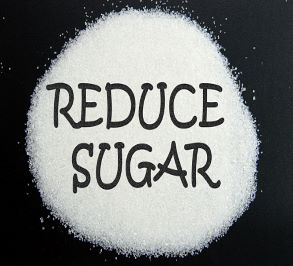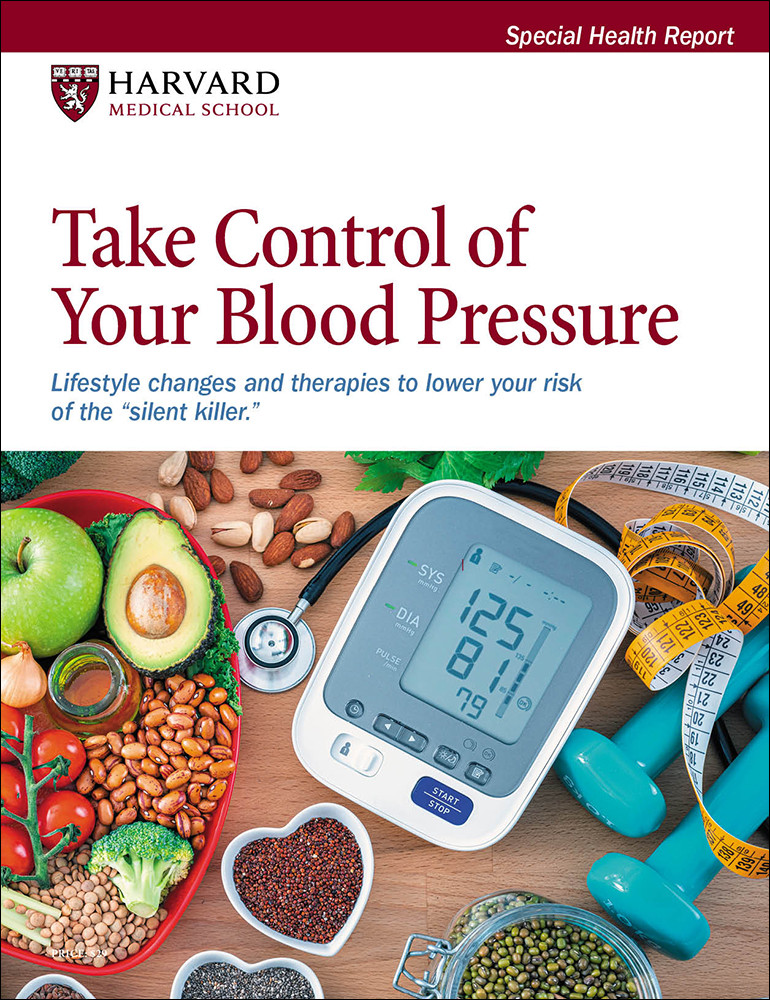
Trying to lose weight? Be careful not to lose muscle

Is your skin problem actually an autoimmune condition?

People with diabetes face higher risk of hearing loss

Antibiotic-free fixes for recurrent UTIs

Musculoskeletal syndrome of menopause: When menopause makes you ache all over

When can older women stop getting mammograms?

To lose weight, especially harmful belly fat, combine diet and exercise

Can men hold off on treating recurring prostate cancer?

The 7 types of rest and why we need them all

What are the early warning signs of cervical cancer?


Reducing Sugar in Your Diet: Practical steps to reduce your risk of chronic diseases
Reducing consumption of added sugar is a good place to start in improving the overall nutritional punch of your diet. This Harvard Medical School Guide will help you gain a deeper understanding of the different formsof sugar, what foods contain significant amounts of added sugar, how sugaris metabolized by the body, and the health risks it poses when consumed to excess. We also offer practical suggestions from Harvard experts on how to reduce your intake.
Other Product Information
“Sugar and spice, everything nice,” the old saying goes. But according to overwhelming evidence, there’s nothing nice about sugar when it comes to your health. Scores of research studies have linked added sugar to obesity and diabetes — as well as high blood pressure and elevated triglycerides that can lead to heart disease.
What’s more, sugar is nothing but empty calories — it has little to no nutritional value and it does nothing to stave off hunger. But how can you cut back on harmful sugar without giving up the sweetness you crave?
Now, thanks to the experts at Harvard Medical School, you can have the instant, research-backed answers you need that can have a dramatic impact on your health. It’s all in the instant-answer online guide Reducing Sugar in Your Diet.
Instant answers are just 5 minutes away!:
- yummy foods that help short-circuit harmful sugar spikes after a meal
- the truth about natural sugar alternatives: The straight scoop on raw sugar, honey, agave syrup and more
- the smart artificial sweetener that makes a healthier substitute for baking sugar
- the three secret letters that reveal sneaky added sugar on food labels
- how healthier sugar alcohols let you enjoy the sweetness of processed sugar with just half the calories. Discover the easy way to spot them on food labels.
- the biggest sources of hidden sugars — including certain fruit and sports drinks, condiments, soups, and yogurts
- sweet and tasty desserts that make filling, nutritious alternatives to traditional high-calorie fare
- how sugar substitutes can actually work against your quest for better health.
Start now to wean yourself from health-threatening added sugar… starting today!
Prepared by the editors of Harvard Health Publishing in consultation with Frank Hu, M.D., Ph.D., Professor of Nutrition and Epidemiology, and Chair, Department of Nutrition, Harvard T.H. Chan School of Public Health Professor of Medicine, Harvard Medical School. (2022)
About Harvard Medical School Guides
Harvard Medical School Guides delivers compact, practical information on important health concerns. These publications are smaller in scope than our Special Health Reports, but they are written in the same clear, easy-to-understand language, and they provide the authoritative health advice you expect from Harvard Health Publishing.
- Sugar and your health
- What is sugar?
- Added sugar: Where and how much?
- What happens to sugar in the body
- Sugar and chronic disease risk
- How to reduce added sugar
- Don’t stop with sugar
- Resources
You might also be interested in…

Take Control of Your Blood Pressure: Lifestyle changes and therapies to lower your risk of the "silent killer."
An alarming one in three American adults has high blood pressure. Known medically as hypertension, many people don't even know they have it because high blood pressure has no symptoms or warning signs. But when elevated blood pressure is accompanied by abnormal cholesterol and blood sugar levels, the damage to your arteries, kidneys, and heart accelerates exponentially.
Fortunately, high blood pressure is easy to detect and treat. In the Special Health Report Controlling Your Blood Pressure, find out how to keep blood pressure in a healthy range simply by making lifestyle changes such as losing weight, increasing activity, and eating more healthfully.

Trying to lose weight? Be careful not to lose muscle

Is your skin problem actually an autoimmune condition?

People with diabetes face higher risk of hearing loss

Antibiotic-free fixes for recurrent UTIs

Musculoskeletal syndrome of menopause: When menopause makes you ache all over

When can older women stop getting mammograms?

To lose weight, especially harmful belly fat, combine diet and exercise

Can men hold off on treating recurring prostate cancer?

The 7 types of rest and why we need them all

What are the early warning signs of cervical cancer?
Free Healthbeat Signup
Get the latest in health news delivered to your inbox!
Sign Up